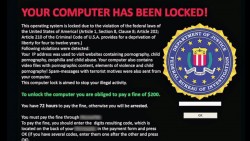Weekly News Roundup (10 April 2016)
It’s all copyright all the time for this week’s WNR, and there’s even a bit of “Panama Papers” discussion to jump on that particular bandwagon.
![]()
We have a trio of copyright related news this week, one quite ridiculous, while the other two seems far too sensible for something copyright related.
So the real question is, should I start with the ridiculous one, or the two more sensible ones? Hmm, I think I’ll go with sensible first, leaving the froth inducing, fist shaking one til the end, to get you all worked up ready for the upcoming week. I know, I can be a real d*ck sometimes.
Once again, it’s up to a tech company to come up with some sensible suggestions for changes to existing copyright law, this time it’s the company behind WordPress, Automattic, suggesting it’s time to introduce penalties for those that submit invalid DMCA takedown requests.
It’s a well known fact that DMCA takedowns are often abused, sometimes intentionally to cause harm to be competitor, but most of the time, because of lazy copyright holders not bothering to check their machine generated submissions more carefully (just last week, there was a story suggesting a third of all DMCA requests sent to Google are “questionable” at best). But right now, there are no penalties for this, while there are plenty at stake if service providers do not act on the requests in time (even if it’s obviously invalid).
This is why Automattic wants statutory damages to be introduced for blatant misuse of takedowns, as well as the use of legal bonds to ensure copyright holders are made accountable for their actions. A very reasonable request that will no doubt be ignored because it’s not biased enough (or biased at all) towards rightsholders.
Over in Europe, common sense appears to be coming back to copyright law as well, with the European Court of Justice’s advocate general making the audacious suggestion that linking isn’t the same as uploading. While the advice is limited to one particular case, it could still have a major impact on how copyright liability is viewed in Europe. The advisory suggests that if a piece of copyrighted content is already publicly available, then linking to it is not the same as “making it available”, because someone else has already done it. This isn’t to say that the linking party isn’t guilty of facilitating the discovery of pirated content, but it’s just not copyright infringement.
Of course, the advisory also makes it clear that the intention and purpose of the site should also be taken into consideration. While sites like The Pirate Bay also merely “link” to pirated content and not host it, the site’s main purpose is clearly tilted towards the copyright infringement side, but a personal blog or a news website who links to copyrighted content would be treated differently, according to the advice.
So now onto the ridiculous. Controversial and not-very-profitable-lately anti-piracy monetization firm Rightscorp has a new plan to defeat piracy and make a quick buck – hijack the web browser of suspected pirates! The company wants to work with ISPs to send copyright infringement and “settlement” notices directly to people’s browsers. And if they ignore it like they ignore Rightscorp’s emails and don’t pay up, then Rightscorp wants their web browsers to be locked until the payment clears. So nothing like ransomware, which locks up people’s computers or web browsers to elicit a payment.
The relationship between ISPs and Rightscorp have not been great so far, so it’s hard to see any ISPs jumping on the “let’s make our paying customers really angry” bandwagon, even if Rightscorp may promise revenue sharing (which they’re not). Rightscorp’s big selling point to ISPs? Do this and you’ll reduce your liability, Rightscorp says, but ISPs can already do this if they have a reasonable and enforceable repeat offender policy, leaving browser hijacks to sketchy ransomware operators.
In minor copyright news, the much talked about Panama Papers (click here if you don’t know what it is) has some surprising copyright links too, it appears. The fate of Icelandic Prime Minister Sigmundur Davíð Gunnlaugsson, whose name has appeared in the papers and suggests an attempt by him and his wife to hide assets in offshore accounts, could mean a rather surprising victory for the country’s Pirate Party, which (even before this latest scandal) is actually polling as the most popular political party in Iceland. While Gunnlaugsson has taken temporarily leave (and not resigned as first thought), an autumn election is set to take place, and if the Pirate Party can continue to poll well until then, it could be a very interesting election to say the least.
Also listed in the Panama Papers are two former Megaupload employees. The two used the services of the law firm at the centre of the scandal, Mossack Fonseca, to start an offshore company. According to the two, Dutch programmer Bram Van der Kolk and Slovak designer Julius Bencko, the company was started to work on a project unrelated to Megaupload, but kept hidden because Mega’s Kim Dotcom did not like employees to work on their own projects. But according to Dotcom, the two were actually working on an unauthorised project that used Mega’s source code and would have been in competition with the now defunct file uploading service, which explains why they wanted to keep things secret. Interesting, but not particular important right now given the fate of almost all file uploaders, unauthorised clones or otherwise, since the Mega takedown.
——
That’s it for the week, thanks for reading. I don’t know how you’ll be spending your next week, but I shall be locking myself in a darkened room watching The Force Awakens Blu-ray on an endless loop, with an occasional break to watch the newly released teaser trailer for Rogue One: A Star Wars Story (AT-ATs!). Good times ahead! See you next week.


